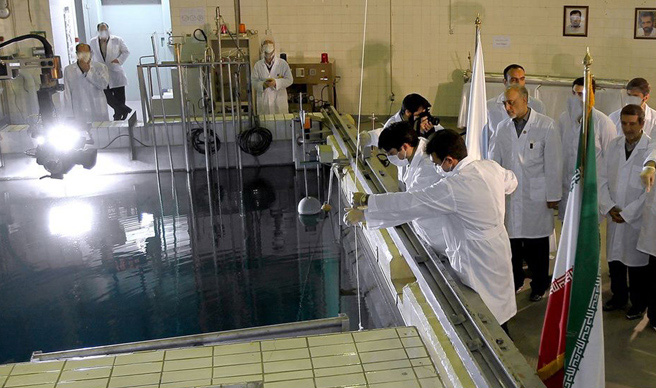Australia/Israel Review
Is Iran complying with the JCPOA?
Oct 16, 2017 | Tzvi Kahn

Tzvi Kahn
US Secretary of State Rex Tillerson declared on Sept. 17 that Iran is in “technical compliance” with the 2015 nuclear deal, formally known as the Joint Comprehensive Plan of Action (JCPOA). This assertion ignores multiple Iranian violations of the letter of the accord. It overlooks the lack of transparency in the International Atomic Energy Agency’s (IAEA) reporting on Teheran’s nuclear conduct. It sidesteps the agency’s failure to receive access to military sites where nuclear weaponisation activities may have occurred. And it contradicts the assessments of other Trump Administration officials.
In fact, on the same day as Tillerson’s statement, US National Security Advisor H.R. McMaster offered a contrasting view. “We know Iran has already violated parts of the agreement,” he said. The Iranians, he added, are “not just walking up to the line on the agreement. They’re crossing the line at times.”
That line encompasses multiple JCPOA provisions. Teheran has repeatedly exceeded the JCPOA’s limits on advanced centrifuge research and development. It assembled more than a half dozen IR-8 rotor assemblies at the Kalaye Electric facility in north Teheran. It operated 13-15 IR-6 centrifuges in a single cascade. It has consistently exploited conditions governing the quality assurance of advanced centrifuge manufacturing to conduct mechanical testing of advanced centrifuges, an activity tightly controlled by the JCPOA.
Iran twice exceeded the deal’s 130-ton cap on its heavy water. But while the IAEA noted that Teheran shipped the excess material out of the country, the Joint Commission – the body tasked with monitoring the JCPOA’s implementation – allowed the regime to retain ownership of the material on foreign soil, spurring Teheran to store it in Oman. Consequently, Iran still likely possesses heavy water in violation of the 130-ton limit.
Teheran has continued efforts to acquire technology for the production and delivery of nuclear weapons. Last year, Teheran illicitly attempted to acquire carbon fibre, a key component of centrifuge production, though a supplier and its government denied the request. German intelligence has reported that Iran continued to pursue illicit procurement of missile technology.
The Iranian regime has rejected the Trump Administration’s calls this summer for full access to its military sites. In June 2016, the Wall Street Journal reported that the Obama Administration had concluded that one of those sites, the Parchin military complex, was likely connected to its covert nuclear weapons program. Last month, however, an Iranian spokesman described Washington’s latest request for access as a “ridiculous dream that will never come true.”
Technically, an Iranian refusal to grant access to suspicious locations constitutes a violation of the JCPOA only if the IAEA formally requests such access. In this case, however, an IAEA official acknowledged that the agency had declined to issue such a request because it fears that Washington would use an Iranian refusal as an excuse to abandon the JCPOA. “If they want to bring down the deal, they will,” said the IAEA official, referring to the Trump Administration. “We just don’t want to give them an excuse to.”
But the response of Teheran and the IAEA makes it impossible to verify whether Iran’s illicit conduct has continued, prompting Nikki Haley, the US Ambassador to the United Nations, to ask in a Sept. 5 speech, “How can we know Iran is complying with the deal, if inspectors are not allowed to look everywhere they should look?”
This lapse reflects a larger problem in the IAEA’s reporting on Iran’s nuclear activities. Each of the seven quarterly IAEA reports issued since the JCPOA’s implementation in early 2016 has lacked key information that would enable independent assessments of Iranian compliance, raising concern that the agency seeks to conceal compliance disputes that may jeopardise the deal. The latest IAEA report, released on August 31, omitted – among other data – information on centrifuge production, centrifuge R&D activities, the exact quantity of heavy water stored in Oman, and nuclear weaponisation issues.
Moving forward, Trump Administration officials should uniformly insist on greater accountability and transparency both from Iran and from the IAEA.
Tzvi Kahn is a senior Iran analyst at the Foundation for Defence of Democracies. © Foundation for Defence of Democracies (www.defenddemocracy.org), reprinted by permission, all rights reserved.
Tags: International Security, Iran, JCPOA






